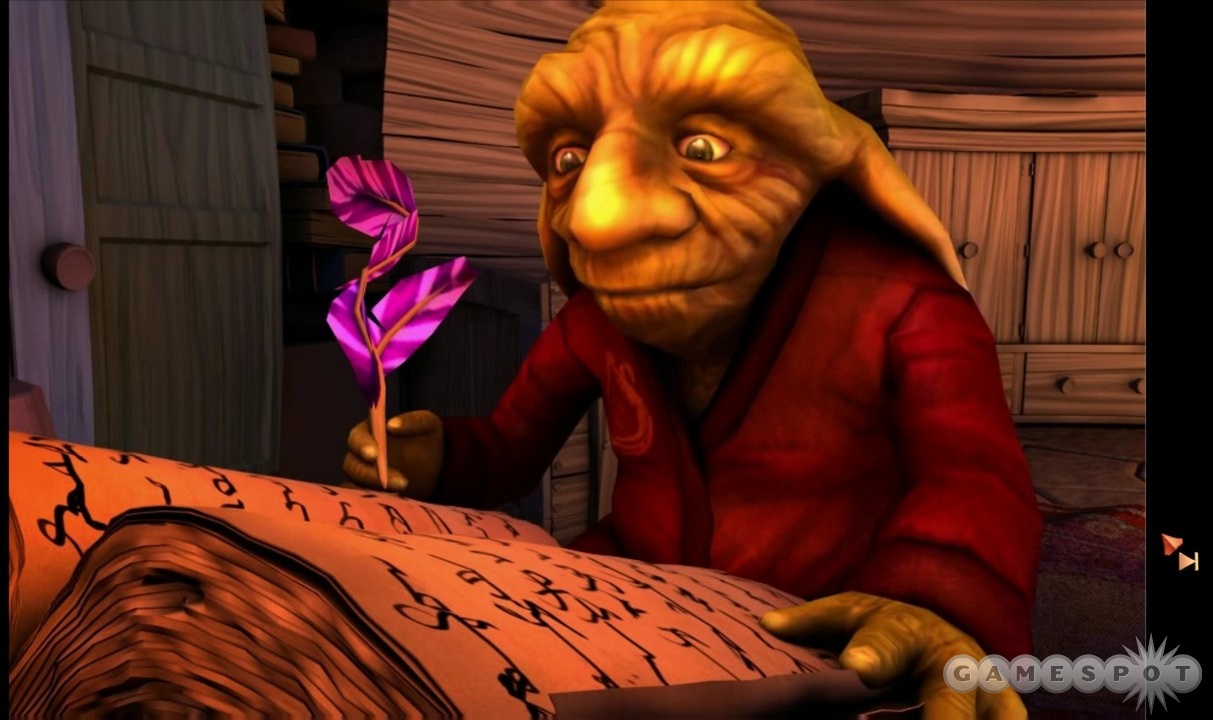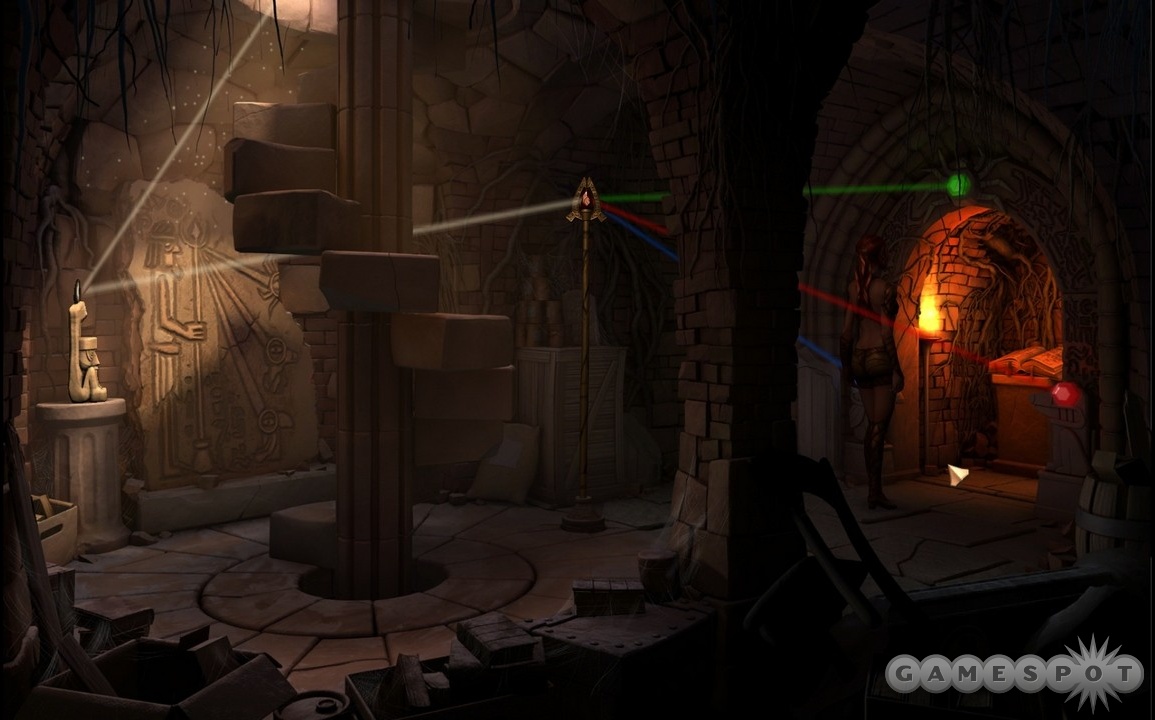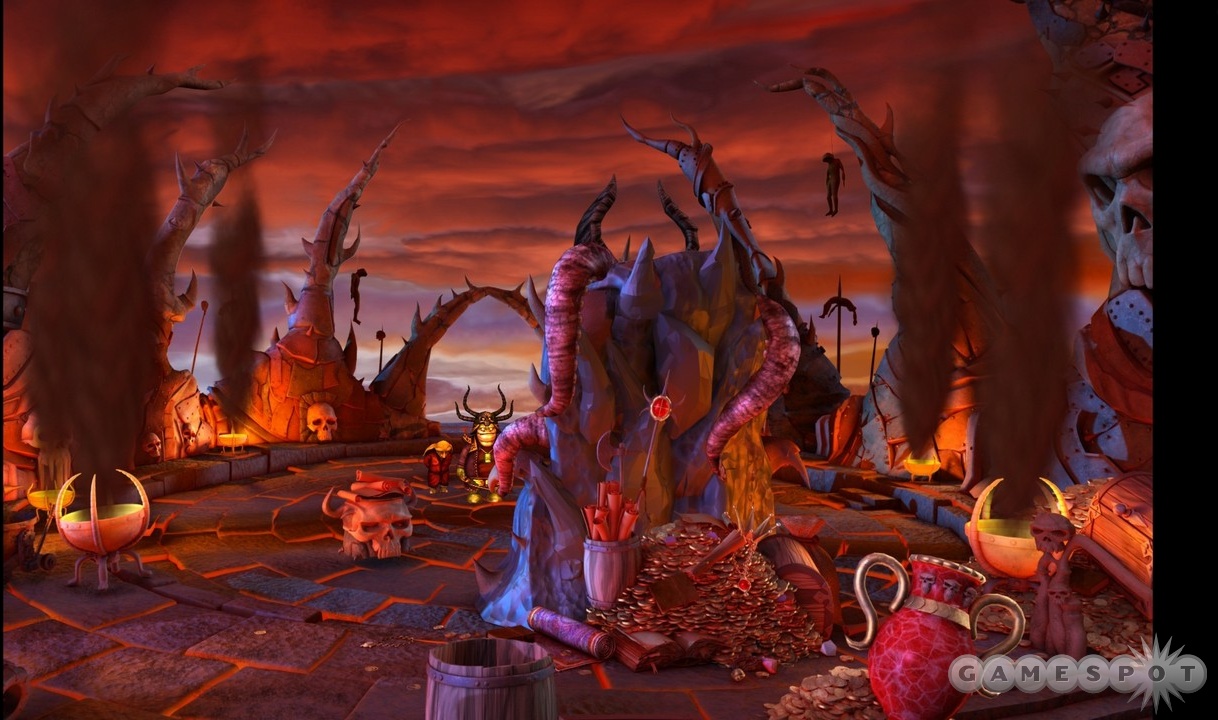Playing The Book of Unwritten Tales is like opening a game preserved in a time capsule for the past two decades. This traditional point-and-click adventure originally released in Europe in 2009 harks back to the days when Sierra and LucasArts ruled the world with legendary franchises like King's Quest and Monkey Island. German developer King Art has crafted a lighthearted fantasy grounded in an earthy sense of humor and grown-up story themes and has avoided the impossible, illogical puzzles well known to plague other games in the genre. In short, this is a great achievement in both story and design that should be played by anyone who appreciates an old-school adventure.

While The Book of Unwritten Tales is a striking name for an adventure, it doesn't make a whole lot of sense when you start thinking about it. How exactly does one put together a tome filled with "unwritten" stories anyhow? Thankfully, the plot makes more sense than the title. The cinematic saga on tap here tells the story of a medieval fantasy land embroiled in a war between the good-guy Alliance of humans, dwarves, gnomes, and the like, and the evil Shadow Army stocked with the usual trolls and goblins. The bad guys are on the offensive as the game begins, with the monstrous Munkus, son of the Shadow Army's boss witch Mortroga, kidnapping the rather Yoda-like Professor MacGuffin.
This wizened old archaeologist may just know the whereabouts of an arcane gadget called the Artefact of Divine Power that could change the course of the war. After a brief escape aided by the shenanigans of a sexy, scantily clad wood elf named Ivo (she's more Lohan than Lothlorien), MacGuffin hands the fate of the world (and a golden ring) off to a geeky gnome kid named Wilbur Weathervane, and you spend the rest of the game swapping between this duo and a rakish rogue named Captain Nate Bonnett. Resemblances to hero-saga myths from King Arthur to Star Wars are entirely noncoincidental.
But even though the story weaves together a lot of familiar themes, it does so in entertaining ways and lasts a just-right 12 to 15 hours of play time. The art is gorgeous and cute, but not cutesy. Some scenes are reminiscent of a cartoon speckled with unicorns and rainbows, while others feature grim reminders of war, such as executed enemies strung up from trees. There is a great balance to the game's settings. All of the characters are interesting and voiced by competent actors. Wilbur, for instance, could have been either a wide-eyed innocent or a total smart-aleck, but he's played with real balance and given dialogue that is self-deprecatingly admirable without tipping over the edge into cloying territory. The game also mixes a sense of wonder common to playing-it-straight fantasy with a fair number of wink-wink, nudge-nudge moments that almost break the fourth wall.

Thankfully, the laughs aren't played up too much. You're treated to the odd crack about things like not feeding gremlins after midnight and the sudden arrival of the shrieking strings from the shower scene in Psycho when Wilbur takes scissors to his dwarven boss. Musical references are fantastic here, particularly the use of Grieg's famous "In the Hall of the Mountain King" early on. These little reminders are just enough to let you know that the developers are in on the joke, without going so far that the whole game is turned into a farce.
Gameplay in The Book of Unwritten Tales sticks tightly to the template established long ago and far away by the likes of Sierra's Roberta Williams. So you collect a lot of objects. The story is pretty much a progression from one puzzle to another, where your way is blocked by something like a locked door or a particular set of circumstances such as a crazy grandfather who wants you to make a bunch of goofy gadgets before he fires you off in his giant cannon. All of these obstacles are overcome by scouring the scenery for various items ranging from piles of trash to top hats to bags of gold. You can cram just about everything and anything into your pockets, so feel free to hoover up all that you find. Accoutrements are used both on their own and in combinations to solve problems. And you are never hit with one problem after another in succession. So you don't have to deal with those incredibly annoying adventure-game situations where you run around fetching a dozen objects only to then have to figure out how to turn on the power, or get something running and then find that it quickly breaks down, and so forth. Those sorts of frustrating surprises are mercifully left out.
So adventure-game logic is front and center. But nothing will break your mind by demanding bizarre leaps of imagination. You generally follow common sense, doing things like combining a rabbit and a top hat to demonstrate a magic trick, making a butterfly net from a broken tennis racket and some spare netting, or using flint with paper and wood to start a fire. If anything, the game's puzzles veer too much to the side of caution and can be a little too easy. Many times, the only serious challenge is in scanning the busy scenery to see what objects can be picked up, because most of them are blended into the backdrops so perfectly that it can be impossible to tell what is important and what is just there for color. One or two extreme problems requiring serious out-of-the-box thinking would actually be welcome, although it is awfully pleasant to be able to play a traditional adventure game without being forced to resort to an online walkthrough.
You could call The Book of Unwritten Tales a sort of comfort food for anyone who hungers for a good old-fashioned adventure, but that compliment doesn't fully describe just how charming this game is. King Art has done a great job crafting this point-and-click adventure, while also remaining pleasantly self-aware of its own conventions. It's just a shame that it took two years for this outstanding game to come to North America. Still, better late than never.
